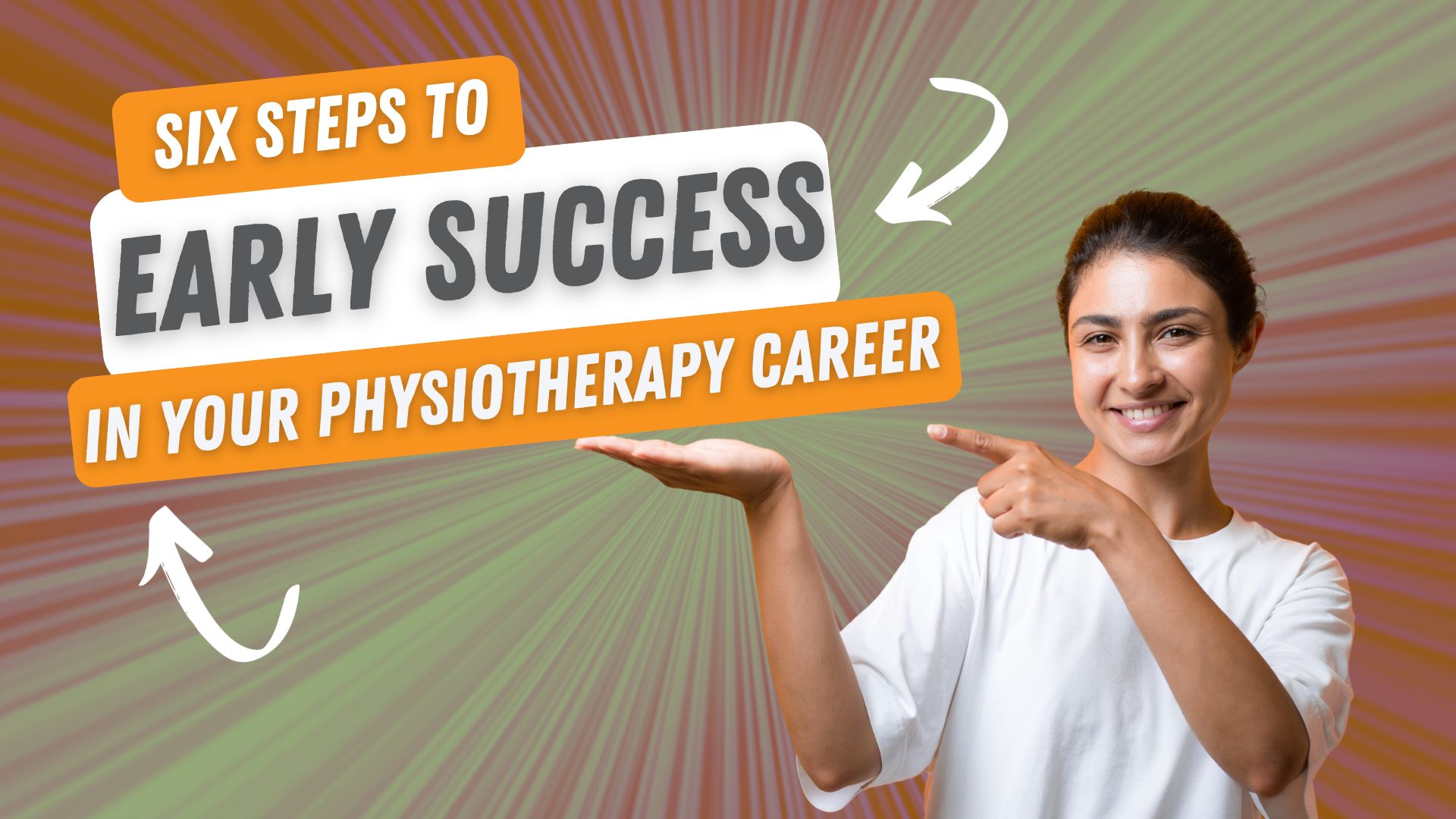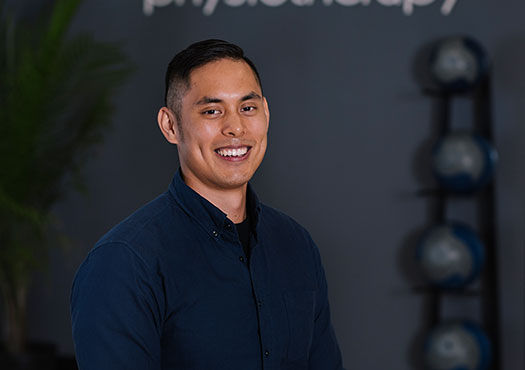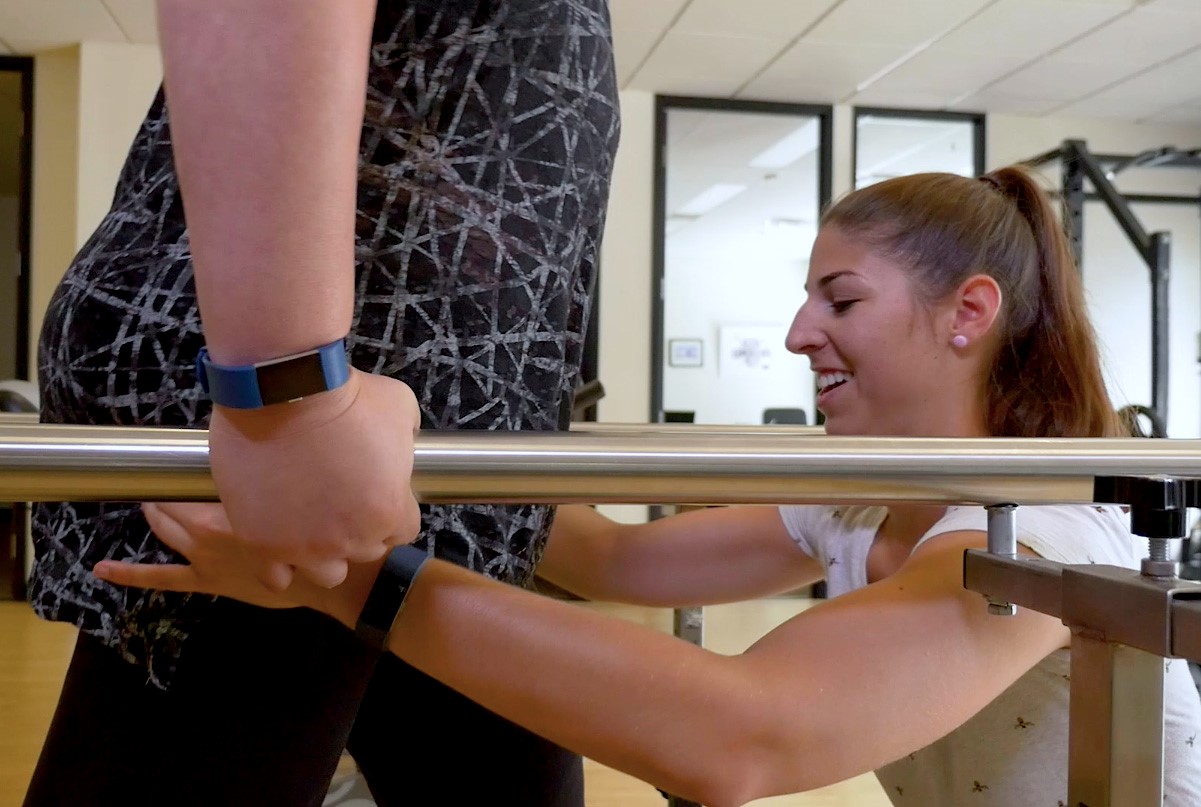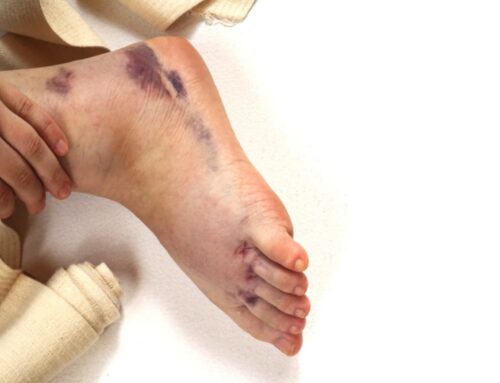Looking back on my career in physiotherapy, I think it is fair to say that I experienced some challenges as a new graduate – especially working in the private sector. I struggled to balance a healthy and meaningful caseload with life goals. As the stress of financial and family obligations mounted so to did my feelings of self doubt.
In order to see the success I wanted in my career, I knew I had to change my mindset and objective measurement of time. Separating my goals into long-term versus short term was essential to helping me find solace in the ups and downs of clinical practice. Also, understanding that the bumps in the road were there to teach me something valuable and make the final destination that much sweeter.
Early in my career, I had a choice between pursuing a leadership role in the private sector and switching to the public sector or consulting. Staying in the private sector would mean having to learn a lot on the job and be more open to risk and failure. While the public sector was somewhat safer, it would also mean less flexibility in terms of my schedule.
I had to take a step back and look at what I valued in life. Ultimately, I found the private sector more attractive in terms of the diversity of experience, the application of my education, and the ability to balance my work and life. Fortunately, the clinic that I was part of offered me all of those opportunities.
With these values in mind, I was motivated to work towards my future goals knowing my efforts would make a difference. I had to remind myself that putting in effort now did not necessarily mean seeing immediate success the day after. But every action would ultimately lead me in the direction of what was most important to me.
Finding a workplace that is the right fit for you and designing a career path with intention can set you up for success on your terms!
In this blog, I will help you to navigate your situation by providing six steps to early success in your physiotherapy career. Take a moment to check if you are actively engaged in these behaviours to further your professional skills.
Table of Contents:
- Be timely with responses
- Ask for help
- Collaborate with team members
- Learn to manage your time well
- Be proactive
- Set goals early
- Conclusion
1. Be Timely with Responses
Health professionals and physiotherapists alike are often pressed for time when needing to answer emails, respond to messages, or return phone calls. Strategically, it is best to set aside blocks of time throughout the day to respond to messages, so that you don’t stray too far from your intended schedule for the day.
Setting a concrete start and end time to respond to emails will help to naturally organize which messages you need to prioritize a response to, and which ones can wait till later in the day when you’ve completed your roles and responsibilities as a clinician and clinical care.
2. Ask for Help – Then Demonstrate You Can Do It
Asking for help on clinical skills, paperwork, or operations that seem mundane can feel intimidating. Nobody wants to seem incompetent in front of their managers or co-workers. However, there’s a good chance that if you’re struggling with something, others around you have also run into that issue as well. Asking for help to solve the problem is great, but the magic is in applying yourself to demonstrate you can actually do it the next time on your own. Repetition, and eventually teaching others, is a tried and tested method of solidifying your skillset.
3. Collaborate with Team Members
All successful clinicians have learned to work on a team in some capacity. As great as our skills and knowledge might be, it won’t necessarily be applicable to every client and our skillsets may not encompass all of their issues.
For example, I once had a client who was really stuck on the mindset that there was something “mechanically” wrong with their knee. Despite radiographical or diagnostic imaging showing them there were no artifacts of concern and my professional opinion to the contrary, they continued to press on with this narrative.
We organically got to the topic of mindfulness and using body scans as part of our practice. After working with our mindfulness coach and adapting a body scan for their goals, the client came to the conclusion for themselves that even if (somehow) there was still a “mechanical” issue with their knee, the best practice approaches would not necessarily change and they were doing everything in their abilities to get themselves better.
Having gratitude and appreciation for their challenges helped this client get better faster, and return to the activities they love doing. They continue with this practice to this day!
Now, without me collaborating with and getting more information from a mindfulness coach, I would not have been able to help my client in the direction we needed to go. And without being open to new experiences, that important piece of information would have not made its way to the client, in a timely manner.
Knowing how to and when to refer to another team member is essential to the progress of a client’s health. Attending in-services, learning about your team members’ unique skillsets, and having team ups with work colleagues for overlapping sessions is a direct way of being of more service to the person seeking help from you. In addition, referring to others that can assist your client will make you more competent in the other professionals’ skillsets, and vice versa.
4. Learn to Manage Your Time Well
I often hear people expressing the need to improve their time management skills. In a busy work environment, it is not uncommon to feel like there aren’t enough hours in the work day to accomplish everything you have to get done. Fortunately, there is a wide array of applications available, catering to both basic and advanced needs, which can assist individuals in improving their time management abilities.
Many clinicians, known for their exceptional organization amidst hectic work and personal schedules, rely on specific start and end times for their sessions, meetings, and interactions. Their mantra revolves around the belief that if a task isn’t on their calendar, it won’t get accomplished, and anything that needs to be done must find a place in their schedule. While initially, creating a task or to-do list might seem satisfying, it can quickly become overwhelming as tasks accumulate week after week. Instead, focusing on small, scheduled events and goals can help you stay on course, especially when you’re just starting out.
5. Be Proactive
Being proactive in any company or organization is an attribute that helps to set yourself apart from others and encourages fruitful discussion on progressing your career. Ask yourself these questions:
- How are you pro-actively making yourself a better clinician?
- Are you advocating for your profession to people who may benefit from your skillset?
- Are you an agent or advocate for your client?
- Have you helped others in your work circle become better at soft or hard skills that they are struggling with?
Being pro-active and addressing concerns before they begin demonstrates maturity in thinking and clinical reasoning. This will also relate to structured mentorship sessions you have with your supervisor or mentor. Having questions and a list of items that you want to go over ensures each meeting is meaningful and benefits both parties. Having the ability to proactively communicate to your mentor about the focus for a particular session would be helpful as well. For instance, “I would really like to go over hands- on clinical assessment skills of assessing ligamentous integrity of the elbow.”
6. Set Goals Early
Setting professional and life goals early is important to help you maintain your vision and motivation when developing your career. New clinicians can have difficulty balancing the two once they become proficient and confident in their professional career.
Breaking down your goals into short, medium, and long term is a great way to guide your career. Separating it into the parallels of personal, professional, and academic goals will show you how they are related to one another, and which are most important.
A popular example with many new clinicians may be something like this:
Short term professional goal:
- Build caseload and put things I learned into practice
- Pass the final part of licensing exams as a resident.
Short term academic goals:
- Take a professional development course
- Attend as many in-services as possible
- Attend academic conference this year
Short term personal goals:
- Pay off $5,000 of student loans
- Start fund for independent living
- Become more educated on professional and personal finances
- Travel the globe for a year
We can see from this example that in order to achieve these goals, there is overlap in your efforts in progressing the others- when one moves forward, the others tend to get nudged forward too!
Conclusion
Working towards a long-term goal can be exhausting, especially if it seems like there is no end in sight. It is important to break down bigger goals into smaller more easily attainable goals and celebrate those wins along the way.
It is also important to have check points with mentors or colleagues that you trust. Depending on the goal(s), there may be multiple checkpoints with different people throughout your career. Mentors play a pivotal role in one’s career by offering guidance, wisdom, and insights that can significantly accelerate professional growth. Their experience and advice not only provide valuable lessons but also serve as a source of motivation and inspiration along the journey to success.
I was fortunate to have a mentor who was transparent, open, and spoke from his heart (big shout out to Kyle Whaley). Through story-telling, guided mentorship programs, and clinician-goal centred meetings, we were able to strike a good balance between professional, academic, and life goals.
We carry these principles with our clinicians to this day during our mentorship touchpoints, and in many ways, we learn from them as they share their ambitions and goals with us. With these meetings, we are able to find clinicians their right fit within the clinic and keep their goals in mind at the same time.
Written by

















